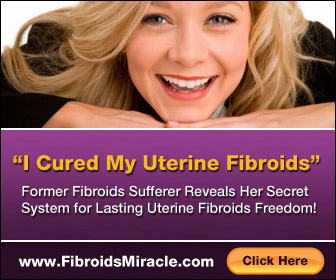Being faced with the possibility of surgery for uterine fibroid removal can be frightening. Most women don’t find it appealing to have part of their womb (or the whole womb) taken out to remove fibroids.
Because of this kind of fear, many women seek to venture for more conservative methods in treating fibroids. They often wish to find the perfect “self-removal” technique for fibroid treatment.
However, there is no known or proven self-removal technique for uterine fibroids. But there are proven ways in which you help your body prevent, heal and recover from fibroids.
The following FAQs will provide answers that might help you in your “self-healing” endeavor against uterine fibroids.
How Do I Prevent Fibroids in the First Place?
Uterine fibroids are commonly observed to occur in women with the following predisposing factors:
- Age between 30 and 50
- Of African descent or ethnicity
- Has another family member with fibroids
- Is overweight or obese
However, knowing this does not save or exempt any woman from experiencing fibroids, whether they have any of the risk factors or not. Fortunately, every woman has the capability to prevent fibroids from ever growing in the first place.
Fibroids can be prevented by the help of a healthy diet and lifestyle:
1) Eat more greens.
Vegetables are great at keeping your lady parts healthy and fit. Women who eat more green vegetables are observed to have lower risk for fibroids compared to those who eat more red meat.
2) Consume less alcohol.
Frequent consumption of alcohol increases the risk of fibroid growth. This is because alcohol triggers the hormones, which influence fibroid growth, to increase.
3) Quit smoking.
Smoking is notorious for causing a wide variety of health problems, including the risk for fibroids. This is because smoking affects the body’ regulatory processes that maintain muscle and organ health.
4) Maintain a healthy weight.
Maintaining a healthy weight produces many benefits. One of its main effects is helping you keep your blood pressure within normal range. Fibroid growth has been linked with high blood pressure, so keeping your blood pressure low will most likely also keep your fibroid risk low.
5) Maintain hormonal balance.
One of the most notable influencer of fibroid growth is hormonal level. Whenever the body experiences fluctuations in hormones due to certain conditions, fibroids become more likely to develop. This is especially true about estrogen and progesterone levels. When one of them increases while the other decreases, there is no balance and thus stimulates aberration in the uterine muscles or tissues.
Is There Anything I Can Eat to Help Shrink Fibroids?
As mentioned above, eating more vegetables will keep your uterus healthy and fit. But there are also other kinds of food that you should eat when you are healing from fibroids.
1) Fiber-rich food
Foods rich in fiber help you keep a healthy body weight and also keep fibroids contained. Eating oats, whole grain products, and fruits along with vegetables can help slow the growth of fibroids.
2) Dairy products
Dairy products like yogurt and cheese contain minerals that help prevent fibroid growth. These minerals include calcium, magnesium and phosphorus.
3) Potassium-rich food
Potassium can help keep your blood pressure in check. It counters the effects of salty food in the body. Fruits and vegetables like bananas, avocados, lentils and collard greens are good sources of potassium.
What Kind of Habits Should I Develop to Fight Fibroids?
Based on the preventive habits mentioned above, the best healing habits you should develop to fight off fibroids are:
- Develop an exercise regimen and do it regularly.
- Limit alcohol intake and increase water intake.
- Work hard on not smoking.
- Avoid chemical-laden products and foods because some chemicals cause hormonal imbalances.
My Fibroids aren’t Going Away, What Kind of Doctor Should I Seek for Treatment?
Even if you religiously abide with your fibroid self-healing regimen, not all fibroids may go away easily. If you still experience the same symptoms after a while, maybe it’s time to see a doctor.
The best doctors to seek for advice are gynecologists. These are the doctors who have the best understanding about women’s reproductive system and health.


